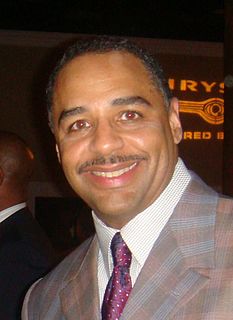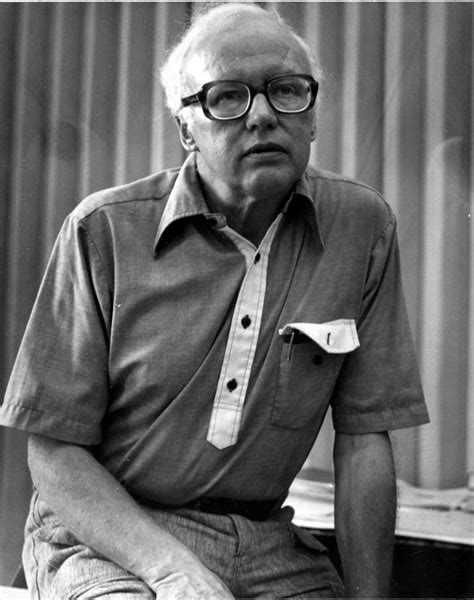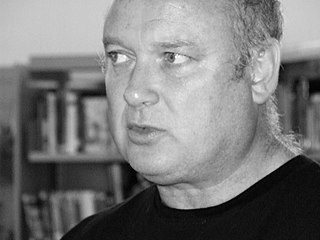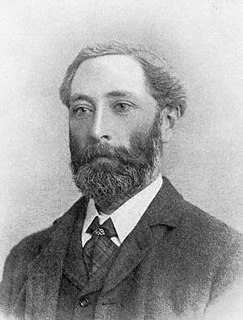Top 323 Acquaintance Quotes & Sayings - Page 6
Explore popular Acquaintance quotes.
Last updated on April 16, 2025.
Nothing can tell us so much about the general lawlessness of humanity as a perfect acquaintance with our own immoderate behavior. If we would think over our own impulses, we would recognize in our own souls the guiding principle of all vices which we reproach in other people; and if it is not in our very actions, it will be present at least in our impulses. There is no malice that self-love will not offer to our spirits so that we may exploit any occasion, and there are few people virtuous enough not to be tempted.
Setting aside the vast herd which shows no definable character at all, it seems to me that the minority distinguished by what is commonly regarded as an excess of sin is very much more admirable than the minority distinguished by an excess of virtue. My experience of the world has taught me that the average wine-bibbler is a far better fellow than the average prohibitionist, and that the average rogue is better company than the average poor drudge, and that the worst white-slave trader of my acquaintance is a decenter man than the best vice crusader.
No man can promise himself even fifty years of life, but any man may, if he please, live in the proportion of fifty years in forty-let him rise early, that he may have the day before him, and let him make the most of the day, by determining to expend it on two sorts of acquaintance only-those by whom something may be got, and those from whom something maybe learned.
She was still under the spell of her infatuation. She had tried to forget him, realizing the inutility of remembering. But the thought of him was like an obsession, ever pressing itself upon her. It was not that she dwelt upon details of their acquaintance, or recalled in any special or peculiar way his personality; it was his being, his existence, which dominated her thought, fading sometimes as if it would melt into the mist of the forgotten, reviving again with an intensity which filled her with an incomprehensible longing.
A man of my acquaintance once wrote a poem called "The Road Less Traveled", describing a journey he took through the woods along a path most travelers never used. The poet found that the road less traveled was peaceful but quite lonely, and he was probably a bit nervous as he went along, because if anything happened on the road less traveled, the other travelers would be on the road more frequently traveled and so couldn't hear him as he cried for help. Sure enough, that poet is dead.
You have to get rid of borders, limits, and classifications; then light comes. We see everything on the screen of our ideas. We must get rid of that screen to be able to see what is behind. X's ideas are limited, that is why he remains on the surface. Y got rid of the limits, so she always goes to the depths. We should always meet people and new subjects with no set frame of mind. We have to live like that even after long acquaintance. We must get rid of every set idea to approach everything and everyone with love.
The true Christian regards all Christ's friends as his friends, members of the same body, children of the same family, soldiers in the same army, travelers to the same home. When he meets them, he feels as if he had long known them. He is more at home with them in a few minutes, than he is with many worldly people after an acquaintance of several years. And what is the secret of all this? It is simply affection to the same Savior and love to the same Lord.
Even those who identify themselves as libertarians follow an overtly anti-rationalist philosophy, as even a brief acquaintance with the work of Friedrich Hayek should make clear. The argument against reason in this literature is straightforward: it is impossible for any individual to acquire enough reliable information to make a rational decision, any actions founded on rational thought will therefore be delusional, any attempts at reason should therefore regarded as dangerous, and all action should instead be guided by tradition.
I particularly recollect your saying one night, after they had been dining at Netherfield, 'SHE a beauty!--I should as soon call her mother a wit.' But afterwards she seemed to improve on you, and I believe you thought her rather pretty at one time." "Yes," replied Darcy, who could contain himself no longer, "but THAT was only when I first saw her, for it is many months since I have considered her as one of the handsomest women of my acquaintance.
It has been long considered possible to explain the more ancient revolutions on... the Earth surface by means of these still existing causes; in the same manner as it is found easy to explain past events in political history, by an acquaintance with the passions and intrigues of the present day. But we shall presently see that unfortunately this is not the case in physical history:-the thread of operation is here broken, the march of nature is changed, and none of the agents that she now employs were sufficient for the production of her ancient works.
I've been an acquaintance of the president Ryan Glover for some years and for a couple years we've been talking about possibilities, puzzle pieces fitting together. I was doing an event that they were sponsoring, and after a group of us went to dinner and we started talking a little bit more and one thing led to another.We all thought it might be a good idea to try to develop a show and as we started talking about the show that we might bring to air, it turned into doing a newsmagazine.
The dividing line [between friends and acquaintances] is communication, I think. A friend is someone to whom you can say any jackass thing that enters your mind. With acquaintances, you are forever aware of their slightly unreal image of you, and to keep them content, you edit yourself to fit. Many marriages are between acquaintances. You can be with a person for three hours of your life and have a friend. Another will remain an acquaintance for thirty years.
Among Negroes of my generation there was not only little direct acquaintance or consciously inherited knowledge of Africa, but much distaste and recoil because of what the white world taught them about the Dark Continent. There arose resentment that a group like ours, born and bred in the United States for centuries, should be regarded as Africans at all. They were, as most of them began gradually to assert, Americans. My father's father was particularly bitter about this. He would not accept an invitation to a 'Negro' picnic. He would not segregate himself in any way.
There is a kind of grandeur and respect which the meanest and most insignificant part of mankind endeavor to procure in the little circle of their friends and acquaintance. The poorest mechanic, nay, the man who lives upon common alms, gets him his set of admirers, and delights in that superiority which he enjoys over those who are in some respects beneath him. This ambition, which is natural to the soul of man, might, methinks, receive a very happy turn; and, if it were rightly directed, contribute as much to a person's advantage, as it generally does to his uneasiness and disquiet.
The Fitchburg Railroad touches the pond about a hundred rods south of where I dwell. I usually go to the village along its causeway, and am, as it were, related to society by this link. The men on the freight trains, who go over the whole length of the road, bow to me as to an old acquaintance, they pass me so often, and apparently they take me for an employee; and so I am. I too would fain be a track-repairer somewhere in the orbit of the earth.
The family of Dashwood had long been settled in Sussex. Their estate was large, and their residence was at Norland Park, in the centre of their property, where, for many generations, they had lived in so respectable a manner as to engage the general good opinion of their surrounding acquaintance. The late owner of this estate was a single man, who lived to a very advanced age, and who for many years of his life, had a constant companion and housekeeper in his sister.
Past, n. That part of Eternity with some small fraction of which we have a slight and regrettable acquaintance. A moving line called the Present parts it from an imaginary period known as the Future. These two grand divisions of Eternity, of which the one is continually effacing the other, are entirely unlike. The one is dark with sorrow and disappointment, the other bright with prosperity and joy.... Yet the Past is the Future of yesterday, the Future is the Past of to-morrow. They are one-the knowledge and the dream.
Being a nerd, which is to say going too far and caring too much about a subject, is the best way to make friends I know. For me, the spark that turns an acquaintance into a friend has usually been kindled by some shared enthusiasm . . . At fifteen, I couldn't say two words about the weather or how I was doing, but I could come up with a paragraph or two about the album Charlie Parker with Strings. In high school, I made the first real friends I ever had because one of them came up to me at lunch and started talking about the Cure.
In deference to such spectacular carnage it is perhaps perverse to dwell upon one person's death, but we are creatures so constituted that the passing of one friend or one acquaintance has a profounder effect that that of 100,000 strangers. If there is any metaphorical truth in the Jewish proverb that he who saves one life saves the whole world, then there is equal metaphorical truth in the proposition that when one person dies, the whole world dies with them.
De Morgan was explaining to an actuary what was the chance that a certain proportion of some group of people would at the end of a given time be alive; and quoted the actuarial formula, involving p [pi], which, in answer to a question, he explained stood for the ratio of the circumference of a circle to its diameter. His acquaintance, who had so far listened to the explanation with interest, interrupted him and exclaimed, 'My dear friend, that must be a delusion, what can a circle have to do with the number of people alive at a given time?'
Out of a very intimate acquaintance with D. L. Moody, I wish to testify that he was a far greater pray-er than he was preacher. Time and time again, he was confronted by obstacles that seemed insurmountable, but he always knew the way to overcome all difficulties. He knew the way to bring to pass anything that needed to be brought to pass. He knew and believed in the deepest depths of his soul that nothing was too hard for the Lord, and that prayer could do anything that God could do.
He lifed his head and looked down at her seriously. "Could you," he began, then he had to clear his throat. "Could you learn to be fond of me?" he asked. "With enough time?" She looked at him in surprise. It was the first time in all their acquaintance that she'd heard him sound the least bit hesitant. "I don't need to learn anything," she said, before she thought better of it.
An event is not any more intrinsically intelligible or unintelligible because of the pace at which it moves. For a man who does not believe in a miracle, a slow miracle would be just as incredible as a swift one. The Greek witch may have turned sailors to swine with a stroke of the wand. But to see a naval gentleman of our acquaintance looking a little more like a pig every day, till he ended with four trotters and a curly tail, would not be any more soothing. It might be rather more creepy and uncanny.





















